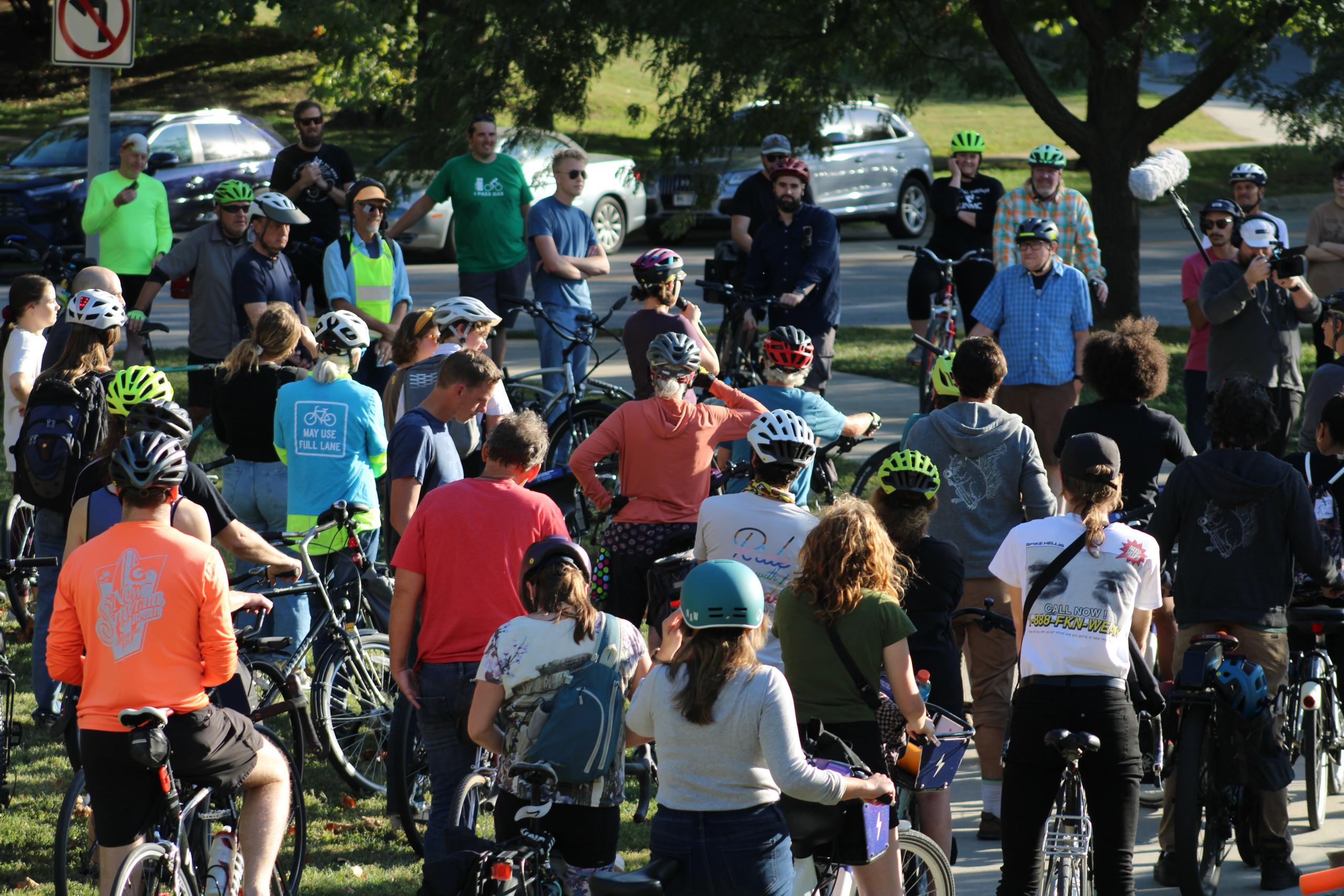A group of citizen organizations, including ModeShift, Omaha Bikes, the Greater Omaha Young Professionals and North Downtown Omaha, have been working with the Omaha Police Department (OPD) to develop an alternative to OPD’s proposed pedicab ban during the College World Series. The city council is scheduled to reconsider the proposed ordinance January 10.
On Thursday, December 29, representatives of the community met with OPD to discuss the issues raised by pedicab operators around the stadium and what could best be done to address those issues. The community representatives, were unanimous in their opposition to the proposed ordinance, stepped up with a plan to address the concerns of the police and institute a program for monitoring pedicab operators that put the responsibility for enforcement and regulation on the community, relieving the police and city of the burden and cost of implementing one more rule.
The community proposal included the following:
- Community Certification of pedicab operators through Omaha Bikes. Certification would require operators to own a safe rig, receive safety information and show proof of insurance.
- Use of pedicab stands for the pick-up and drop-off of passengers around the stadium. The pedicab stands would be staffed by volunteers. The stands, leased or permitted to Omaha Bikes who would reserve the right to bar pedicab operators who are not certified from using the stand — removing bad operators from the stadium area.
- Suggested routes for operators to ensure passenger safety and traffic flow.
- Public awareness campaign of online information and visible on-street signage to let passengers and operators know their rights and expectations around the CWS.
The police department representatives were receptive to the suggestions and wanted to continue the conversation after having internal discussions about the shape and effectiveness of allowing the community to self-police. Under the proposed self-regulation, the police would work with Omaha Bikes to educate and guide pedicab operators such that they do not impede traffic or cause dangerous situations for their passengers. Moving forward, the community asked OPD to put the ordinance in a file, withdrawing it from council consideration, and continue working with Omaha Bikes, et. al. to arrive at a mutually beneficial program of self-regulation.
The fact is, pedicabs are very safe (accidents and injuries are rare) and a system of self-regulation by the community is the best solution to the concerns held by the Omaha Police. Because only one of the roadways in the area of the proposed ban has a speed limit over 25 m.p.h., and all are multi-lane, properly-operated pedicabs are unlikely to block or slow traffic to any significant degree.
We, as part of the active transportation community, cannot accept a ban on a mode of active transportation. To do so would be to allow a dangerous precedent of favoring private motor vehicles to the exclusion of active modes of transportation.
As of today, OPD has declined the request to place the ordinance in a file, but has agreed to again hold-over the ordinance to continue the conversation. While this is not the ideal outcome for us, it still holds hope for a resolution that benefits everyone.
Our best outcome includes the police continuing the dialog with the community to arrive at a solution that does not exclude pedicabs from the stadium, and does not impose restrictions so onerous as to make the operation of pedicabs unsustainable. With this outcome, the police and community can work together to make the CWS the stand-out event of the year, and continue the tradition of exceeding our guests’ expectations for fun and hospitality. From a community perspective, this is by far the preferred outcome. Cooperation between advocates and the police, with the blessing of the council, will create valuable bonds between law enforcement and the active transportation community. An accord on this issue could be the first in a series of cooperative efforts where the active transportation community can work with the police in managing traffic for major events and encouraging alternative forms of transportation to better alleviate strain on our roads.
We look to the coming council meeting with optimism, and look forward to the continued cooperation and dialog of the OPD on this important issue.

